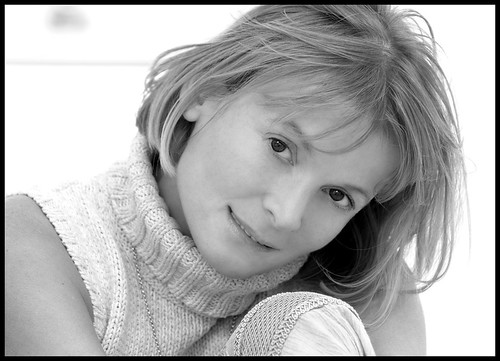
( This portrait was commissioned by The Museum of Liverpool in conjunction with their West Everton Project to be revealed in 2011)
When I turned up at Joey’s house, he looked very surprised. In one hand he held a sheet of curling wallpaper and in the other, an unlit roll-up. The arranged visit had been forgotten and he was in the midst of wallpapering the hall for his wife.
I was a bit dismayed by this, but Joey could not have been more welcoming, and we sat in his kitchen and drank cups of tea. He talked about the good old days, like so many of the others I would meet in West Everton, and for Joey in particular these days were “The Four Squares”.
After showing me a DVD of old B&W photos he had scanned and set to music at college, Joey took me to the place where “The Four Squares” used to be. He pointed out the bungalows that now replaced once thriving shops, and the place on the football court that marked his long gone childhood home. He drew an arch in the air to demonstrate the squares grand entrance, and then, he stood in the middle of a vast empty green field and stared at me, swallowed up by its vastness.
We went back to his house for another cup of tea, then outside in the back garden where Joey had created an ornamental pond. This was his pride and joy and he proclaimed that there was not one gadget he had not sourced for it. Briefly he posed in front of the bubbling water, besides some discarded packaging, which contrasted oddly with the perfection of the pond.
We were here so that Joey could light up. He pulled hungrily on a roll-up, banned from the house because his wife had given it up and could not stand the smell of smoke anymore. Tugging at the remnants of his fag, and rolling it around his teeth, Joey pointed to his pond, and then the house, and declared, “I would give this all up for the old days back in The Four Squares. We were a community then, thick as thieves.” Then he hesitated for a split second before adding with a wry smile, “in fact we were a bit of that too - to survive”.

